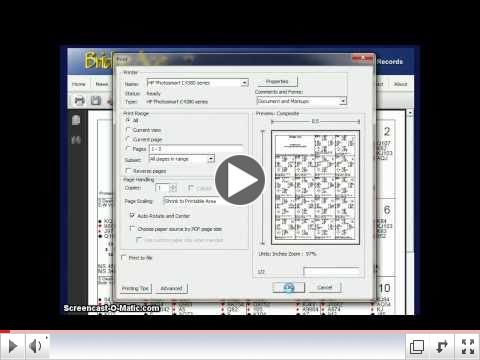 | |
In 1925 an American multi-millionaire transformed the game of auction bridge into contract bridge - the game we play today. Who was he?
Scroll down to find out. |
| Forward to a Friend |  | |
If you enjoy our Deal of the Week newsletter, why not forward it to a friend?
|
| Sign Up for Our Mailing List | |
If this newsletter was forwarded to you, sign up to be added to our mailing list.

|
The Daily Deal

Each day we "seed" one lesson deal somewhere into our otherwise randomly dealt set of boards. The board number is different each day. You never know which board it is. The daily deal is a free mini-lesson. You can take home a handout of the daily deal every day. We hope you find it educational as well as entertaining. To see past Daily Deals, click here. |
|
Replay At Home
 | |
Replay Boards at Home Video |
You can replay the boards you've played at the club - in the comfort of your own home.
Replay the exact same hands with any of several commercial bridge programs such as GIB or Bridge Baron if you own one. If you have not purchased one, we have a free program for you to download.
Watch the video above or click here for further instructions. |
|
Print at Home
 | |
Print Hand Records Video |
|
Download and print hand records from any game played at Bridge Ace.
Watch the video above or click here for further instructions. |
|
Free Bridge Lessons

Rich answers your questions every Tuesday prior to the game. |
Thursdays, we have a vugraph presentation. Rich reviews interesting deals of the past week. Each board in question is projected onto our large video screen for all to see as we discuss it.
We also have many other free bridge lessons online at our website which you can find here. |
|

Check out our new page of free lessons online.
The BOLS Bridge Tips competition started in 1974, and took place off and on for more than 20 years. During that time, virtually all the world's greatest bridge players and writers contributed their ideas to the series.
Not sure what to lead? Can't decide the right bid? Want to make more contracts? Get pointers from the all-time greatest names in bridge -Reese, Rodwell, Zia, Flint, Goren, Hamman, Wolff, Schenken, Garozzo, Belladonna, Chagas and many more - they're all represented. All the advice is here in a perfect potpourri for players of every standard.
These tips are terrific. You can find them here. |
|

Since St. Demetrios is rented out so often on Saturdays, we now hold Saturday games at Billy Rose's bar, Jester's. It is located at:
801 W. Cypress Creek Road
Fort Lauderdale, FL 33334 |
|
Trivia Answer:
Harold S. Vanderbilt
He felt that insufficient bonuses were given to players who contracted to make a high level of tricks (hence the name contract bridge as opposed to auction bridge as it was then called). While on a cruise in 1925, he devised a new method of scoring that, with few changes, is still in use today. |
|
We send out the Deal of the Week newsletter every week. You can view many of our past newsletters here. |
|
|
|
Greetings!
Continuing our series of famous bridge deals ... This week we are not featuring an actual deal, but rather, an interesting historical anecdote about an icon of the game.  | | Oswald Jacoby |
Oswald Jacoby (December 8, 1902 - June 27, 1984) was considered one of the greatest bridge players of all time. He also excelled at, and wrote about, other games including backgammon, gin rummy, and poker.
Born in Brooklyn, he was taught to play whist at the age of six and played his first bridge at ten.
During World War I, he joined the army at 15 by lying about his age, but spent most of his time there playing poker.
Dropping out of Columbia University as a math major to become an actuary, he became the youngest person ever to pass the examination of the Society of Actuaries, at the age of 21. Having an exceptional aptitude for mathematics, Jacoby could multiply three and four digit numbers in his head without benefit of paper.
During World War II and the Korean War, he applied these abilities to counterintelligence and cryptanalysis.
Later, he lectured on probability at M.I.T. and wrote books on mathematics. However, his passion, his life-long focus was games, especially bridge.
By the end of the twenties, Jacoby had achieved fame as a player at both auction and contract bridge, further gaining international recognition when chosen by Sidney Lenz to be his partner in the famous Culbertson Match of 1931. During the match, Jacoby's more aggressive bidding style confused Lenz and after Lenz' criticism over a defensive play, Jacoby withdrew. Terence Reese wrote "That the Culbertsons did not win more easily ... was due to the fact that Jacoby was a player of quite different class from any of the others."
Jacoby subsequently solidified his position as the most successful tournament player in the thirties as a member of the famous "Four Horsemen" from 1931 to 1933 and the "Four Aces", from 1933 to 1941, dominating tournament play.
He pioneered many bidding ideas, including the Jacoby transfer and Jacoby 2NT bids. Throughout his career, he also worked as a bridge columnist. A prolific writer, he wrote over 10,000 newspaper articles on bridge, and his many books include not only bridge but volumes on poker, gin rummy, canasta, and the mathematics of card games and gambling, which he played at high stakes. He also released a record titled How to Win at Championship Bridge.
Jacoby captained the North American and US teams that won the Bermuda Bowl in both 1970 and 1971. During a long playing career, he won tournaments with many partners including his son, James Jacoby, as well as his wife of over 50 years, Mary Zita Jacoby. Terminally ill, his final victory was as a member of the team-of-four champions for the Reisinger trophy with teammates Edgar Kaplan, Norman Kay, Bill Root and Richard Pavlicek at the fall American Contract Bridge League North American Bridge Championships in 1983 - the same year, he was awarded the prestigious Charles H. Goren Award. He died at his Dallas home June 27, 1984. |
 Free Hot Dogs! |
|

Free hot dogs for Memorial Day at Bridge Ace on Monday, June 30! |
 Who Is this Pitcher? |
 Oswald Jacoby's Court Marshal By Myron L. Gordon |
 | | Myron L. Gordon - Senior Judge, Wisconsin Supreme Court Appointed for life by President Lyndon B. Johnson to term beginning 1967. |
Oswald Jacoby was surely one of the brightest stars in the history of bridge.
However, many of his admirers do not know that he was prosecuted and stood trial for his conduct in connection with card games. I was the lawyer who defended him.
The time was 1944; the place was Pearl Harbor, Hawaii. Lieutenant Commander Jacoby was on duty there as a member of the Navy's intelligence section. Admiral Chester Nimitz was the commander of all the naval forces in the Pacific theater of operations during World War II. Jacoby and I were both under his jurisdiction. It was Admiral Nimitz's decision to order Jacoby to face a military court martial on two charges:
(1) the crime of gambling and
(2) conduct unbecoming an officer and gentlemen.
The charge of gambling stemmed from Jacoby's arranging poker games for naval officers who had returned to Pearl Harbor after long periods of bombing Japanese controlled islands in the Pacific. Jacoby would readily plead guilty to the gambling charge, but he refused to accept the validity of the accusation of "conduct unbecoming." There was never any suggestion or slightest hint that Jacoby had cheated anyone in the games. He won more frequently because of his inherent skill in playing cards. Although gambling is technically prohibited by Navy regulations, everyone wholly ignores that restriction. I have never heard of any other prosecution for gambling. Both officers and enlisted personnel regularly play card games for money and they would be shocked to learn it was punishable.
"Conduct unbecoming an officer" is an ambiguous charge, and generally relates to acts which bring disgrace to the Navy. Most servicemen would laugh at the thought that playing cards for money is some type of disgraceful conduct.
The court martial proceedings were held before seven high-ranking officers, five of whom were admirals or generals. All were regular career Navy men, although Jacoby (and I) were reserve officers. It was an imposing tribunal and a bit heavy for this 27-year-old lieutenant (senior grade). I met regularly with Jacoby during the weeks before the trial. I found Jacoby very intent upon his insistence on fighting the "conduct unbecoming" charge with vigor. We found it helpful to call officers familiar with naval prosecutions who would be available to attest their legal opinion that Jacoby's demeanor had no proximity to unbecoming conduct. We also sought out officers who had participated in the games who would comment that the games were wholesome and honest.
The trial lasted two full days. The prosecutors' evidence was that the games involved high stakes and that some players lost large sums. There was testimony that Jacoby organized the poker games, a fact that Jacoby admitted when he gave his testimony, but he went on to explain that it was arranged because the other players requested it. Jacoby acknowledged that as a professional actuary he had a good grasp of the game, that the pots were sometimes sizeable, and that he won more often than he lost.
The members of the court marital retired after hearing all the evidence and arguments of counsel. They returned a unanimous verdict finding him guilty of gambling and imposed a fine of $200. They acquitted him of the charge of conduct unbecoming an officer.
Jacoby was delighted with the result. The punishment was very light and it demonstrated that these seasoned officers on the court were experienced in the way military personnel spent some of their leisure time and money. To put it another way, the judges used their common sense.
Another regulation of the Navy is that the judges in a court martial are to exercise their judgment without fear of any reprisal as to their own careers. Nevertheless, Admiral Nimitz was so disturbed by the verdict that he entered a formal reprimand in the record of each of the seven members of the court.
My client thanked me for my legal services and, as my fee, presented me with an autographed copy of his book entitled Jacoby on Poker.
My more thrilling "fee" consisted of getting to play bridge with him five or six times during the weeks we were together preparing for the trial. |
|
The pitcher pictured above is none other than our own John Banks, who threw out the ceremonial first pitch at last Sunday's Marlins game! |
|
|
|
|